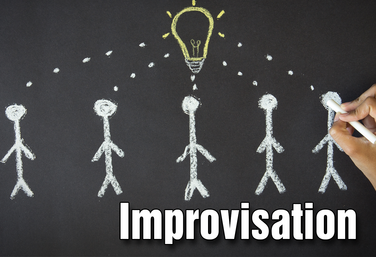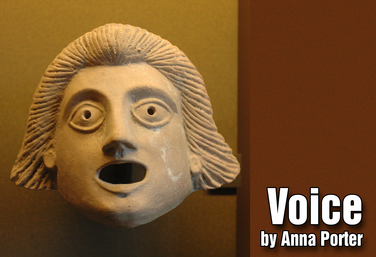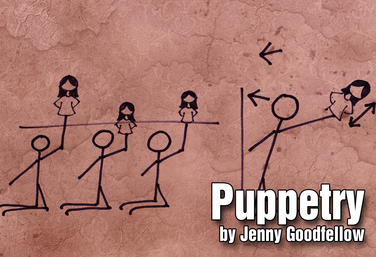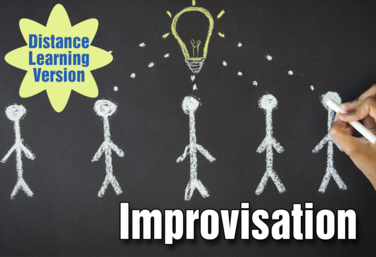Alberta, Canada
Speech Drama 10
View all Standards for Alberta, Canada
9 use and practice levels of pitch
Part of the Drama One Curriculum
Voice
by Karen Loftus
This unit focuses specifically on the technical aspects of vocal production. By understanding how voice is created, students will be more aware of how to improve their vocal production. Students will explore posture and breathing exercises, as well as how to use the diaphragm, projection, and articulation. The final project will test students’ ability to properly project and articulate a joke across a large space.
Read More...
Read Less...
Part of the Drama One Curriculum
Improvisation
by Karen Loftus
Students sharpen their listening and reaction skills through improv games, exercises, and scenes. They will learn five specific guidelines to apply to their improvisation: accept the offer, bring information to the scene, make active choices, make your partner look good, and don’t force the humour.
There are so many different ways to approach a unit on improvisation. Keep in mind that you will have students who are really excited about this unit and some students who dread it. It’s best to start with low-risk games and exercises and then build up to higher-risk ones. Low-risk games in this situation mean partnered interactions that aren’t shared with the whole class.
Read More...
Read Less...
Part of the Drama One Curriculum
Drama One Final Project
by Karen Loftus
The final project will incorporate multiple areas that students have studied over the course of the year/semester: playwriting, acting, scenic design, and marketing. They are putting everything they’ve learned into a final package, including writing, rehearsing, and performing.
Read More...
Read Less...
Voice
by Anna Porter
In this unit, students will be introduced to a key element of performance: the voice. Students will explore how to thoughtfully communicate character, story, and emotion vocally. Students will begin by exploring articulation so that they understand the importance of clearly communicating their words onstage. They will further build on this with the following lesson on the different vocal varieties of pitch, tone, rate, and volume.
The final lesson helps students explore vocal characterization as well as the details and layers that can bring that character to life vocally. This unit study of the voice culminates in a final puppet show where students are asked to bring a story and character to life by using vocal variety, articulation, and characterization.
Read More...
Read Less...
Puppetry
by Jenny Goodfellow
This unit on Puppetry is designed for middle school and up, to introduce students to the material and get them comfortable with performing in a safe and low exposure environment.
This is a unit that builds to a culminating experience for your students. Each lesson is designed to explore techniques, provide opportunities for creative collaboration among your students, and give them opportunities to perform. Some of the lessons require materials to build or create puppets. Puppetry can be as easy as drawing a face on your finger for finger puppets, to actually purchasing your own finger puppets for students to use.
While the focus of this unit is puppetry, your students will explore other skills as well. There’s the obvious ones of creative thinking, teamwork, and problem solving. They are also going to explore storytelling, performing skills, and playwriting.
Read More...
Read Less...
Part of the Distance Learning Curriculum
Improvisation
by Lindsay Price and Karen Loftus
Students sharpen their listening and reaction skills through improv games, exercises, and scenes. They will learn five specific guidelines to apply to their improvisation: accept the offer, bring information to the scene, make active choices, make your partner look good, and don’t force the humor.
Read More...
Read Less...
Part of the Distance Learning Curriculum
Voice
by Lindsay Price and Karen Loftus
This unit focuses specifically on the technical aspects of vocal production. By understanding how voice is created, students will be more aware of how to improve their vocal production. Students will explore posture and breathing exercises, as well as how to use the diaphragm, projection, and articulation. The final project will test students’ abilities to properly project and articulate a joke at a distance from a microphone
Read More...
Read Less...
Impowerment Improv
by Jennine Profeta
Taking risks, learning to see failure as a gift, finding courage when we don't feel it, and having the awareness that what we say has an impact are social and emotional skills students will take beyond the classroom. These are skills that can be built through improv exercises.
The exercises in this unit are designed to create a safe environment in which students can go beyond their old patterns to take risks, embrace failure, and be more confident and aware of the effects of their word choices. Improv gives you the opportunity to draw attention to these important concepts and to talk about them.
Read More...
Read Less...
View all Standards for Alberta, Canada Standards Master List
© Copyright 2015-2025 Theatrefolk







